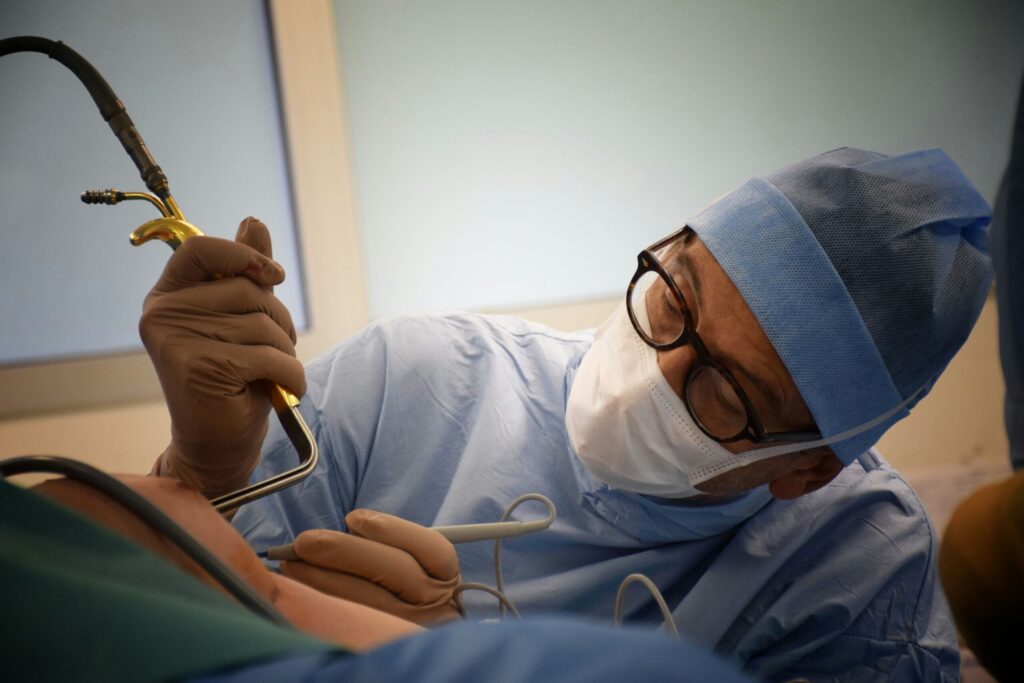When dealing with knee pain caused by osteoarthritis, there are a range of treatment options, including lifestyle interventions, medications, medical procedures and surgical intervention. When symptoms are severe, choosing a total knee replacement may seem like your best treatment option. However, before you make a final decision, you should be aware of the potential disadvantages of knee replacement surgery, highlighted in this post.

Because it is an invasive procedure, knee replacement surgery has a higher risk for complication than other knee osteoarthritis treatment options. Though uncommon, this procedure could result in blood clots, nerve damage or infection. Additionally, the post-surgical recovery period can be long and quite uncomfortable. Finally, knee pain relief may not be complete, even after surgery, and future revision surgeries may be necessary. However, being aware of these disadvantages of knee replacement surgery—and carefully following post-procedural care instructions—can improve your outcomes and optimize your recovery. Alternatively, awareness can help you explore other, less invasive, treatment options.
The post-replacement recovery process is not easy: you’ll have to go to physical therapy, often for months, in order to regain your mobility and strength. You may have knee swelling, pain and stiffness after surgery. And you will need a support system to compensate for your initial loss of mobility.
One of the disadvantages of knee replacement surgery is that I’s not a permanent solution—the replacement lasts between 15 and 20 years. Given that fact, if arthritis develops in the knee at an early age, it may make sense to delay surgery for as long as possible to reduce the likelihood that you’ll need multiple procedures.
Depending on your insurance coverage, you may incur significant out of pocket expenses, since anesthesia and overnight hospital stays will be involved. Be sure to talk to your insurance company and healthcare provider prior to scheduling surgery in order to be accurately prepared.
While surgery should relieve knee pain, it may not restore your full range of motion, meaning you could still experience mobility challenges. As such, if your primary concern is maintaining or returning to an active lifestyle, you may wish to explore alternative treatment options.
Another possible disadvantage of knee replacement surgery is the potential for post-procedural infection. Following surgery, you’ll have to watch out for infection warning signs such as pain, redness, swelling or discharge at the site of your incision. If you notice any of these symptoms, you’ll need to call your doctor right away to prevent further complications.
If you are concerned about the disadvantages of knee replacement surgery but still need relief from knee osteoarthritis pain, there are alternative options.
Here at the Texas Knee Institute, we perform Genicular Artery Embolization, or GAE, a minimally invasive procedure that reduces arthritis inflammation by targeting blood vessels that surround the knee joint. Studies suggest that GAE offers significant pain relief, helping people delay or avoid knee replacement surgery. Request a consultation Request a consultation Request a consultation with our experts to learn more about GAE and to see if you’re a candidate for this procedure.

Scheduling
Please contact our dedicated specialists to schedule a consultation today.
2025 Texas Knee Institute. All rights reserved. Website Design by Healthcare Success